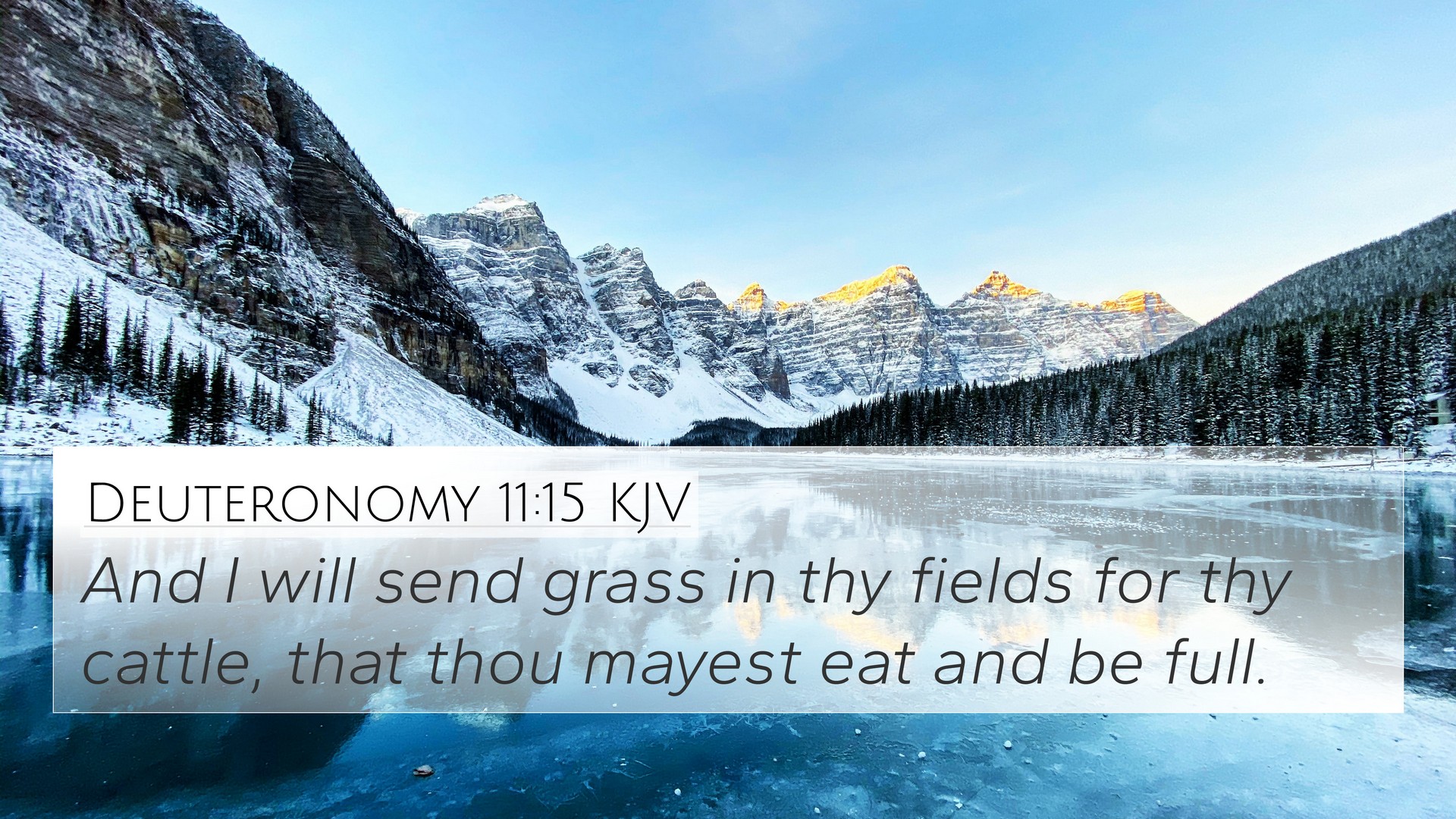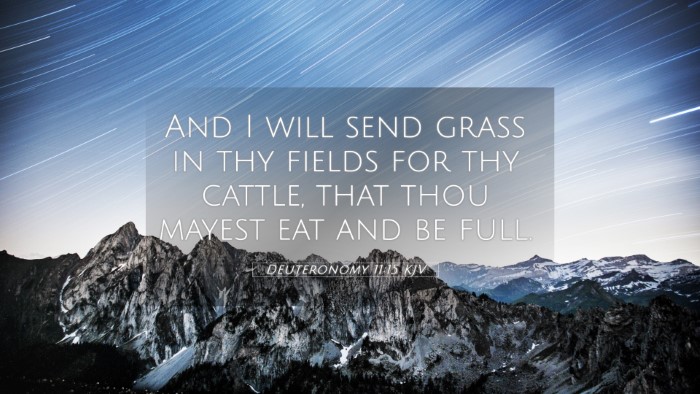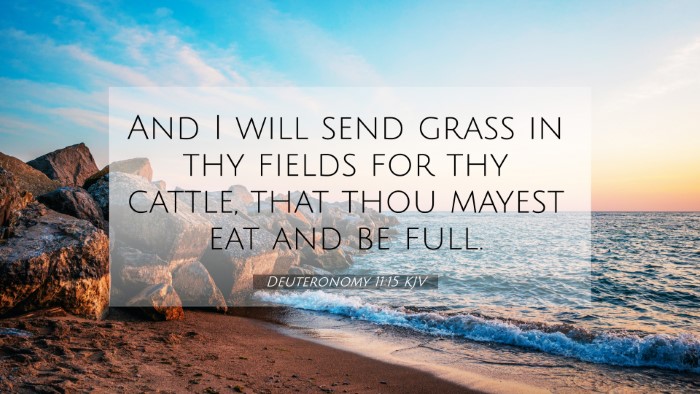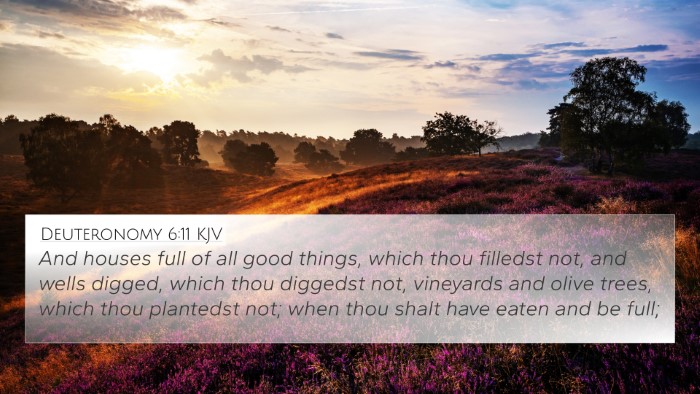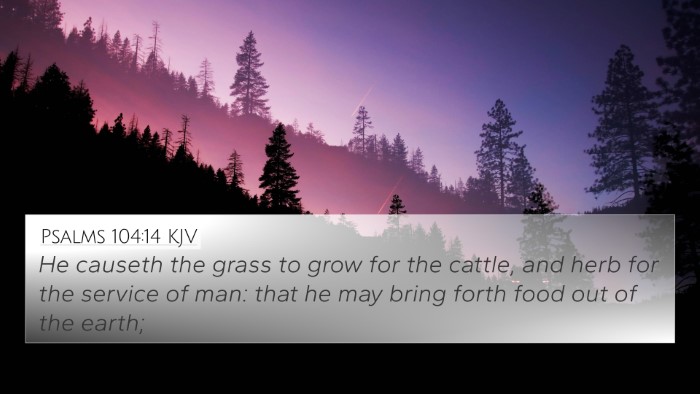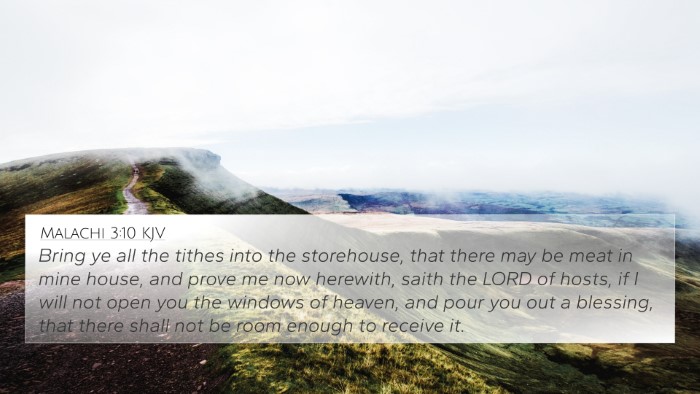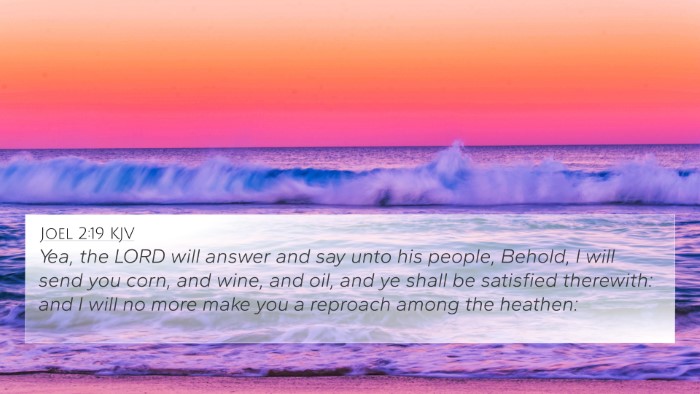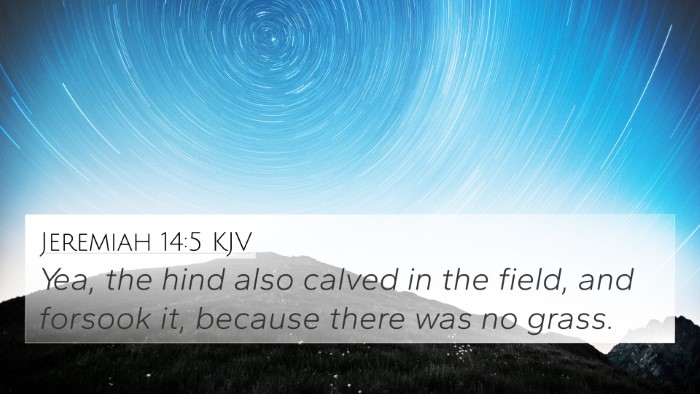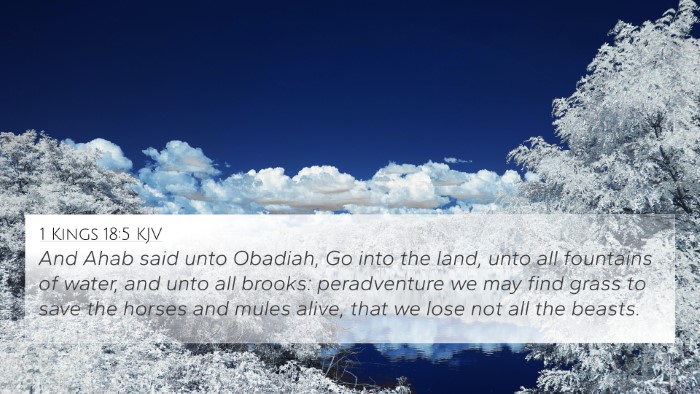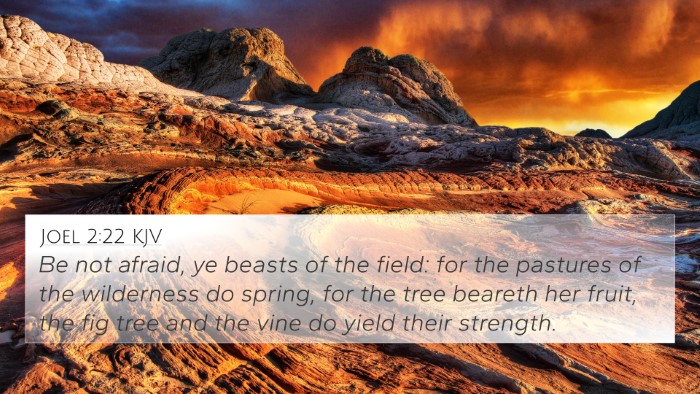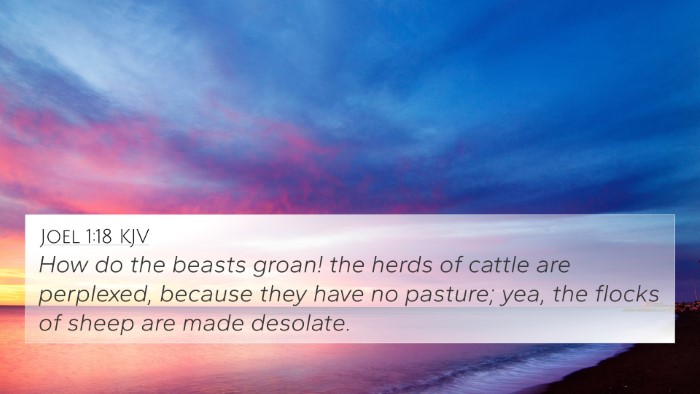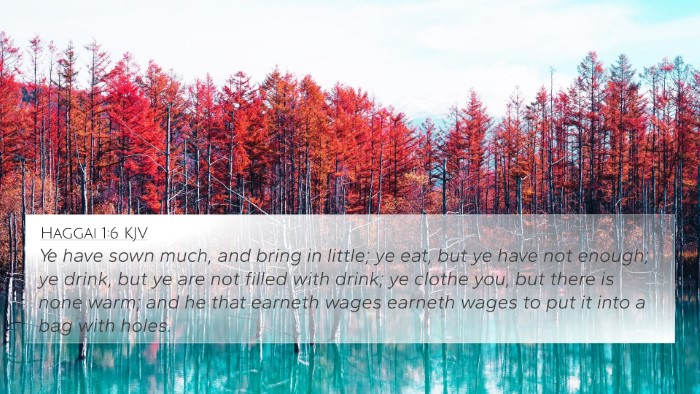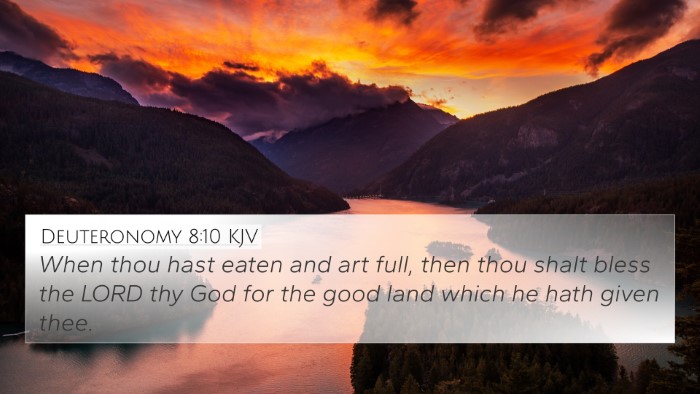Understanding Deuteronomy 11:15
Verse: Deuteronomy 11:15 states, "And I will send grass in thy fields for thy cattle, that thou mayest eat and be full."
Summary of Meaning
This verse emphasizes God's provision and care for His people, particularly highlighting how He meets their basic needs—the physical sustenance necessary for both humans and their livestock. It reflects the covenant relationship between God and the Israelites, illustrating that obedience to God's commandments would lead to blessings, including an abundant supply of resources.
Insights from Public Domain Commentaries
- Matthew Henry:
Henry discusses the significance of this verse in the context of God's promises and the blessings that follow obedience. He emphasizes that God's provision is a vital aspect of the covenant and encourages gratitude for the basic needs that are met through divine bounty.
- Albert Barnes:
Barnes highlights the assurance God provides to His people regarding their sustenance. He notes that the phrase “I will send grass in thy fields” symbolizes God’s active role in nature and provision, reminding believers of their dependency on God for every need.
- Adam Clarke:
Clarke interprets this verse as a reassurance of God’s faithfulness to provide what is necessary for life and health. He points out that this not only applies to agriculture but also symbolizes the spiritual nourishment God supplies to His people.
Bible Verse Cross-References
This verse connects with several other biblical scriptures that elaborate on God’s provision and care:
- Psalm 104:14-15: "He causes the grass to grow for the cattle, and vegetation for the service of man..."
- Matthew 6:26: "Look at the birds of the air; they neither sow nor reap nor gather into barns, yet your heavenly Father feeds them..."
- Philippians 4:19: "And my God will supply every need of yours according to his riches in glory in Christ Jesus."
- 1 Peter 5:7: "Casting all your anxieties on him, because he cares for you."
- Hebrews 13:5: "Keep your life free from love of money, and be content with what you have, for he has said, 'I will never leave you nor forsake you.'
- James 1:17: "Every good gift and every perfect gift is from above, coming down from the Father of lights."
- Genesis 1:29: "And God said, 'Behold, I have given you every plant yielding seed that is on the face of all the earth...'"
- Isaiah 55:10-11: "For as the rain and the snow come down from heaven... so shall my word be that goes out from my mouth."
- Matthew 14:19: "Then he ordered the crowds to sit down on the grass, and taking the five loaves and the two fish..."
- John 6:35: "Jesus said to them, 'I am the bread of life; whoever comes to me shall not hunger...'"
Connections and Comparative Analysis
The connections between Bible verses can illuminate themes present in Deuteronomy 11:15, specifically around the idea of God's abundant provision. The cross-referencing of these verses allows us to see a broader picture of how the concept of divine sustenance is prevalent throughout scripture.
For example, Matthew 6:26 and Philippians 4:19 both reinforce the idea of reliance on God for provision, expanding on the theme introduced in Deuteronomy. This thematic Bible verse connection emphasizes a continuous dialogue through scripture about God’s promises and faithfulness.
How to Use Cross-Referencing Tools
Utilizing a bible concordance or a cross-reference Bible study guide can deepen your understanding of verses like Deuteronomy 11:15. Here are some tools and methods:
- Start with a concordance to find related verses and themes.
- Use a cross-reference guide to track similar teachings across different books.
- Engage in comparative bible verse analysis by exploring how different authors express similar concepts.
- Attend Bible study groups that focus on cross-referenced themes and shared insights.
- Incorporate digital tools or apps designed for bible cross-referencing, enhancing accessibility to various scriptures.
Conclusion
Deuteronomy 11:15 serves as a profound reminder of God's caring nature and His providential oversight. By exploring the connections between this verse and others through scriptural cross-referencing, believers can gain deeper insight into the numerous instances of God's provision found throughout the Bible. Understanding these connections not only strengthens faith but also enriches one's relationship with God's word.
